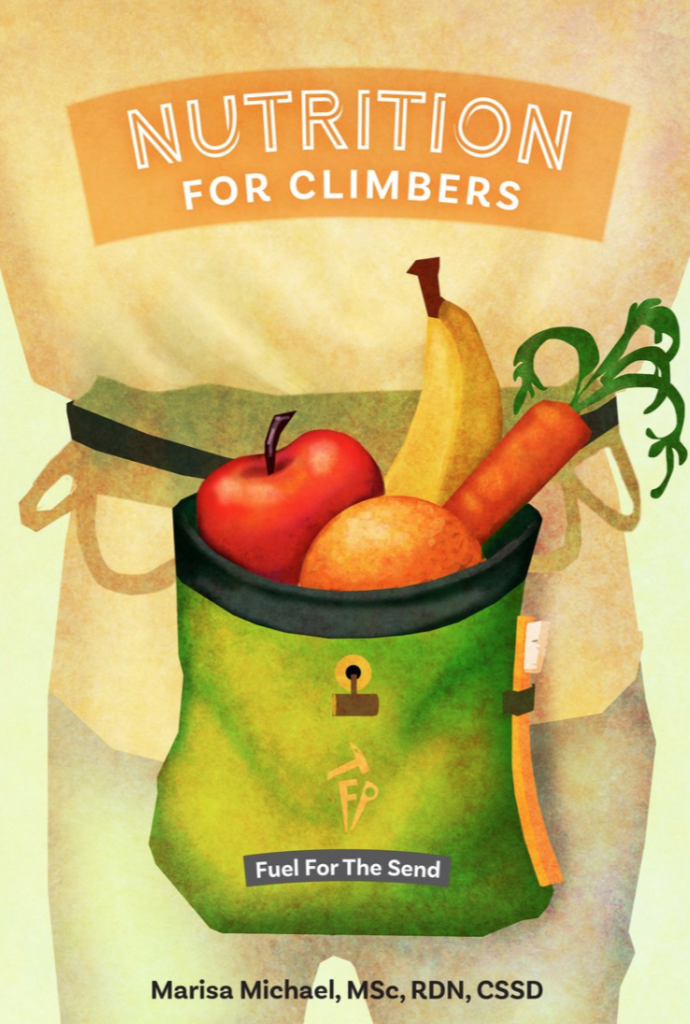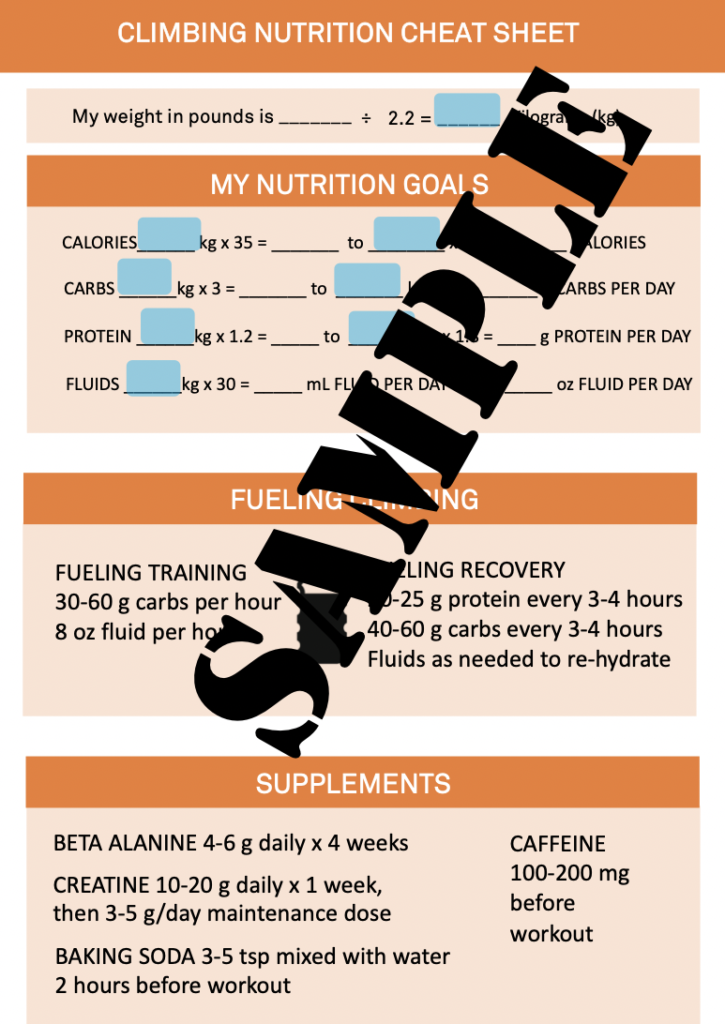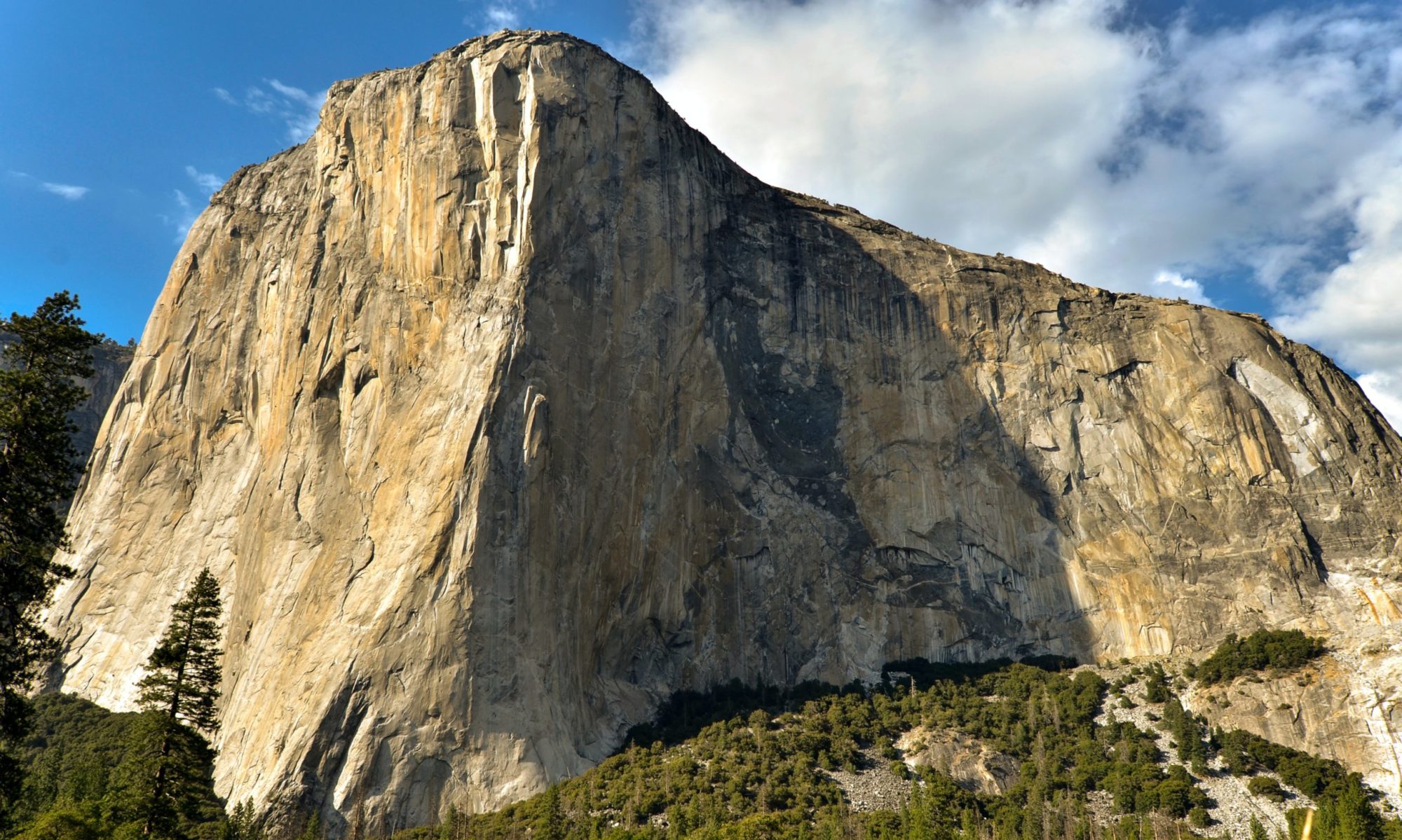
This article was written by Kaila Dickey
Edited by Marisa Michael
Carbohydrates seem to get a bad rap from the fad diet industry. In the 80’s and 90’s fat was the bad guy. Now it’s carbs. I’m just waiting for the next macronutrient to be demonized. Carbs are actually a great thing for climbing performance.
Foods that are good sources of carbohydrates include:
- Milk and yogurt
- Fruit and fruit juice
- Starchy vegetables (potatoes, sweet potatoes, beans, lentils, peas, corn, squash)
- Sweets and desserts (including sugary beverages)
- Grains and grain products (oatmeal, pasta, bread, rice, etc.)
Climbers use carbohydrates to fuel working muscles. Whether you climb trad, sport or prefer to boulder, no climber’s diet should exclude carbohydrates for performance.
Why climbers should include carbs in their diet:
- Carbohydrates are stored as glycogen in the muscles.
- The muscles break down glycogen into energy for the body.
- The brain uses glucose as fuel. How can you think if your brain is hungry?
- Adequate carbohydrate intake spares protein so protein is available to build muscle rather than produce energy
Signs you may need carbs when climbing
- You feel weak, shaky, or dizzy
- You miss easy moves
- You lost your mental sharpness–it’s hard to figure out the beta
- You’re irritable
How much carbohydrate do climbers need?
You want to fuel with carbohydrates before and after climbing. Fueling with carbs during a breaks on long climbing sessions (more than 2-3 hours) is also smart.
In general, climbers should consume 3-7 g of carbohydrate per kg of bodyweight each day. Use the 3-7g carb range as a general guide. Listen to your body’s hunger and let it dictate your intake from day to day. Honor that some days you might be hungrier than others and adjust your carbohydrate dial to reflect that. You may need more carbs if you are also involved in other sports like running or cycling.
To find out how much you need, first divide your weight in pounds by 2.2 This gives you your weight in kilograms. Then multiply by the range 3 to 7 grams per kilogram.
For example, if someone weights 150 pounds, divide by 2.2 to get 68.2 kg. Then multiply 68 by 3 and 7. You get a range of 204-477 grams of carbohydrate each day. The low end of the range is for climbing casually. The higher end is for hard, long climbs combined with strength and/or cardio training.
While actively climbing, eat 30-60 grams of carbohydrate per hour to prevent muscle fatigue. A quick glance at the nutrition label of your favorite crag snack will tell you if you are eating enough carb during climbing. If your favorite crag snack lacks a label, most medium sized fruits and starchy veg contain around 20 g of carbohydrates.
Climbing snack ideas:
- 3 graham cracker sheets
- 2 oz pretzels
- 1 white bagel
- 1 medium box raisins
- 16 oz sports drink
- 2 oz animal crackers
Download our free climbing fueling guides for more ideas!
Fad diets are gaining popularity in the climbing community. Many of these fad diets limit carbohydrates. High fat, low carb diets can be therapeutic for individuals with epilepsy or multiple sclerosis. But average climbers benefit from ample carbohydrates in their diet. The body uses the stored glycogen as a quick and efficient fuel source for working muscles. Climbers can also prevent mental fatigue by eating adequate carbs. The brain needs glucose too! If you want to avoid a flash pump, fuel before and during your session with adequate carbohydrates.


Want to learn more? Check out our on-demand masterclass Nutrition for Climbers, or our book Nutrition for Climbers: Fuel for the Send.
~This is general information only and not intended to be medical advice. Always consult your healthcare provider before undergoing any diet or lifestyle change.
